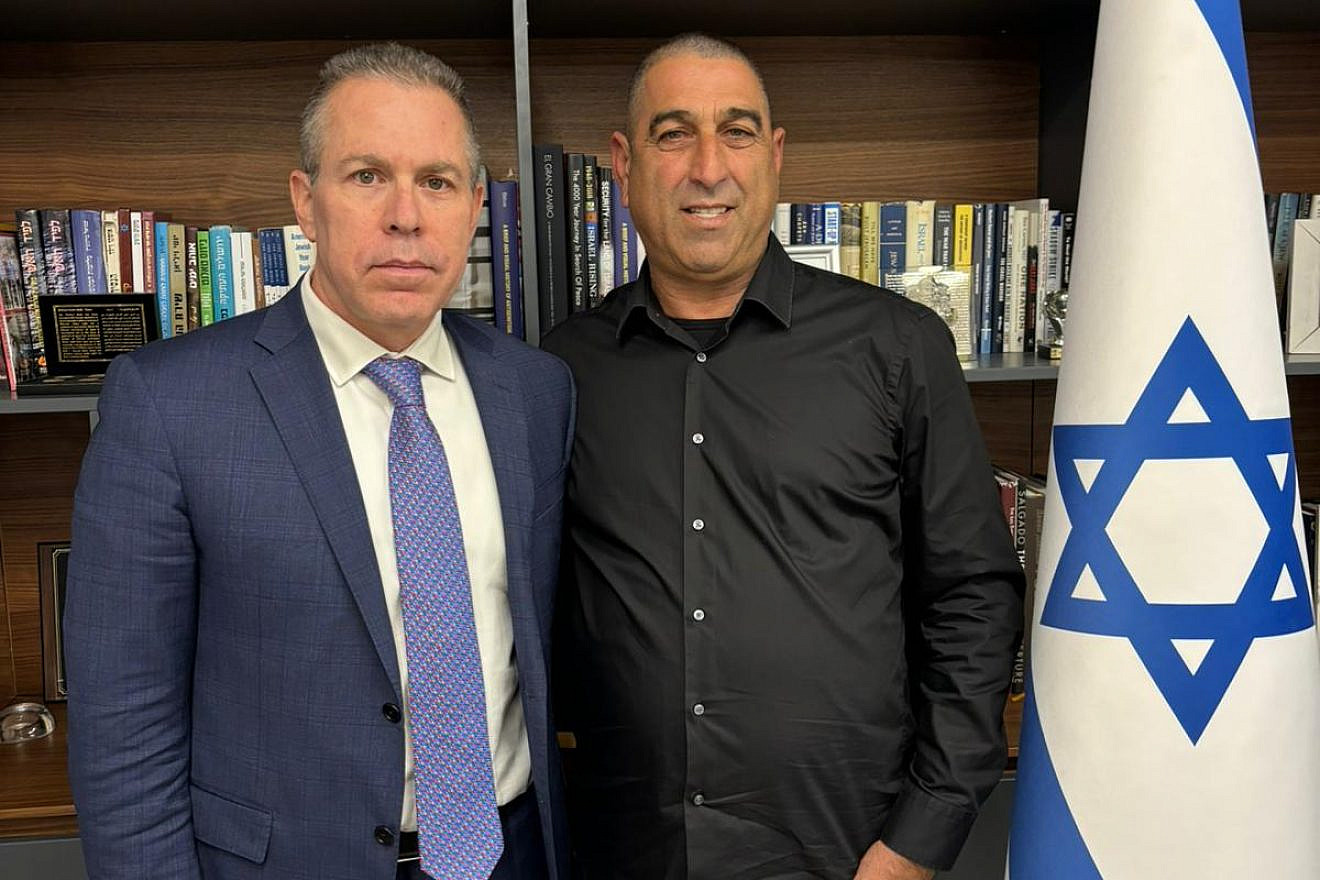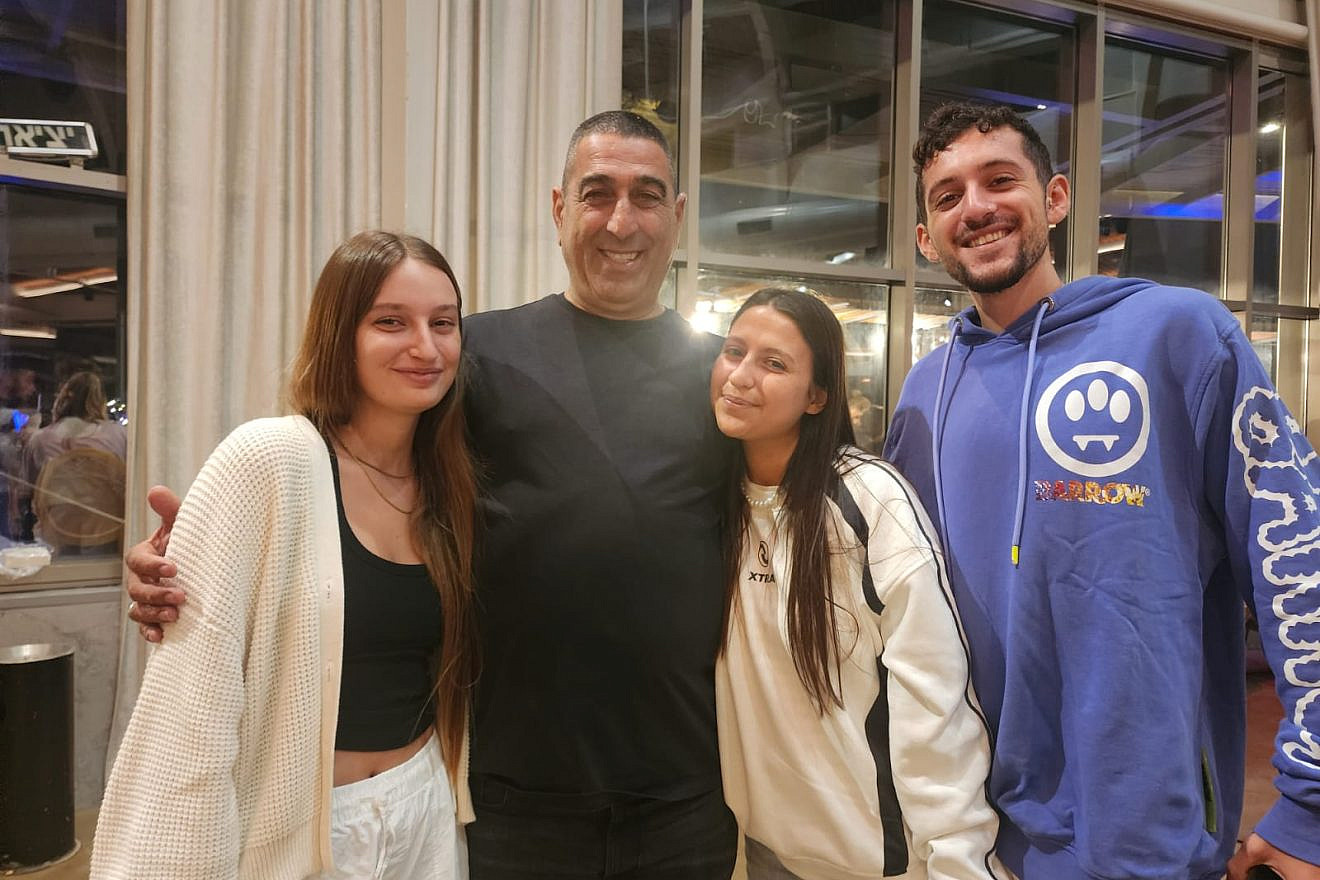Rami Davidian, a farmer from Moshav Patish, an Israeli farming community located about 10 miles from the Gaza Strip, saved scores of young partygoers during Hamas’s murderous assault on the northwestern Negev.
Davidian, 58, will participate this week in a series of gatherings and speaking opportunities in Miami and New York to describe the role he played as a civilian hero during the Oct. 7 terrorist attacks, which killed 1,200 and wounded thousands. He also met Israel’s U.N. Ambassador Gilad Erdan.
At 6:30 a.m. on Saturday, Oct. 7, Davidian received a phone call telling him that a friend’s son was in danger and urging him to help. The scale of Hamas’s onslaught on the Supernova Sukkot outdoor music festival near Kibbutz Re’im, close to the Gaza border, was not apparent to him when he set off on his rescue mission.
A total of 364 civilians were killed and many more wounded, in the biggest single terrorist attack in Israel’s history. At least 40 were taken hostage by Hamas. Attendance was reported to be 3,500, but figures vary.
“On my way to Re’im, I saw dozens if not hundreds of young people, fleeing the site. They surrounded my vehicle as I approached, begging me to help. Then, I began to comprehend the enormity of the crisis,” Davidian told JNS.
Davidian contacted his son-in-law on Moshav Patish, telling him to prepare residents to receive the influx of terrified, wounded and distraught survivors, while he directed them to the moshav.
“Ten minutes later, I found the kid who I had been sent to rescue. I loaded him and a dozen others into my car. As we drove back to the moshav, they described how terrorists were murdering people at the festival and implored me to save their friends,” Davidian related.
He also received scores of messages and phone calls from distressed parents, asking him to locate and save their children. Simultaneously, he started getting live location messages from young people dispersed all over the area.
“I drove back and forth between the site of the festival and the moshav for four hours. Each time I picked up and dropped off 10 or 12 kids. I rescued them under fire and under the nose of dozens of terrorists.
“I hid in the bushes, behind trees, and advanced carefully to get the kids out. I didn’t act like Rambo, I did it quietly and that’s how I succeeded in saving so many,” Davidian added.

‘I spoke to them in Arabic’
Davidian recounted how he pleaded with five or six Hamas terrorists for the life of Amit Parizer, 23, who had sent him her location, in a desperate attempt to escape.
“I was unarmed and outnumbered. I spoke to them in Arabic and told them that I was a Yemenite Muslim coming to alert them that soldiers were closing on them,” he said. “I advised them to leave the girl and escape, while they still could. In that moment, I felt fearless,” he added.
At first, Parizer had attempted to escape with the group of her friends. She lost them in the crowd of young people fleeing for their lives.
“I hid in the bushes and texted my friend Romi, who had met Rami when she escaped and walked all the way to his house in Moshav Patish. She sent me his number,” Parizer told JNS.
“It was very difficult for him to get to me amid the shooting. At one point, six Hamas terrorists saw me hiding in the bushes. Rami arrived at just the right time and rescued me. Rami is an amazing person who, unarmed and fearless, helped so many young people. I will remain grateful for the sacrifice he made to save me for the rest of my life,” Parizer said.
Davidian, who had never had any sort of special training and had not served in a combat unit in the army, said: “On that fateful day, the hand of God touched me and guided me to do this. To me those children were like my own children and I needed to get them to safety.”
He still struggles with the loss of those he could not save.
“In some cases, parents would reach out to me and I would see their kids among the dead. I was not capable of delivering the news, so I’d simply say I couldn’t enter.”
After the IDF arrived and took care of the remaining survivors, Davidian helped with finding those killed by the terrorists. “I saw things one should never see. I saw a naked girl shot, people tied together and executed. I smelled death. I still don’t know how to cope with it.”
Two weeks later, in hospitals and homes all over the country, Davidian visited some of the young people he rescued. “I promised them that when the war ends, I’d have them all over at my house for a celebration,” he said.
Davidian’s nephew Oz Davidian, another farmer from southwestern Israel, also saved, in similar fashion, 120 young people from the music festival.


























